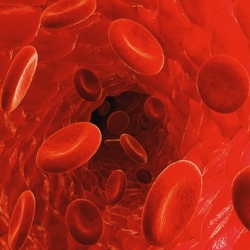
Diagnosing malaria in many parts of the world still requires counting parasites under a microscope on a glass slide smeared with blood. Now an AI can do it more reliably than most humans. That AI comes inside an automated microscope called the Autoscope, which is 90 percent accurate at detecting malaria parasites.
Charles Delahunt and colleagues at Intellectual Ventures Laboratory, the research arm of Nathan Myhrvold’s patent licensing company Intellectual Ventures in Seattle, built the system with support from Bill and Melinda Gates through the Global Good Fund. The Autoscope was tested in the field at the Shoklo Malaria Research Unit on the Thailand-Myanmar border during malaria season in December 2014 and January 2015. The results were published in December.
The Autoscope, a 15-inch-tall, 7-inch-wide smooth white box enclosing a microscope with an attached laptop running a software algorithm, uses deep learning to analyze microscope images. Deep-learning software uses artificial neural networks mimicking the brain to allow computers to recognize abstract patterns.
Delahunt’s team trained the software on 120 slides from collections around the world, both with and without malaria. The software uses visual features like shape, color, and texture to calculate the probability that a given object is a malaria parasite. It classified 170 samples during the field testing in Thailand.
"It could have broad applicability, not only in research and surveillance of antimalarial drug resistance but also in clinical practice,” says Mehul Dhorda, head of the Asia Regional Centre at the WorldWide Antimalarial Resistance Network. Dhorda works with Intellectual Ventures on some of the current Autoscope trials but was not an author of the research.
